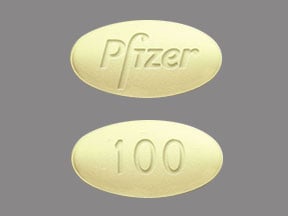
Bosulif Coupons & Savings Card – Discount Prices from $22967.55
My prescription
Edit
100MG, Bosulif (120 Tablets)
Select pharmacy

Albertsons
$22967.55
COUPON PRICE
Walmart
$23074.55
COUPON PRICE
Walgreens
$23085.54
COUPON PRICEBosulif savings card
Show this card to your pharmacist
Albertsons
$22967.55
BIN
ID
PCN
GRP
019876
LH6F71E389
CHIPPO
LHX
Powered by
Related kinase inhibitors prescriptions
More prescriptions for leukemia
Related kinase inhibitors prescriptions
More prescriptions for leukemia
Price history for Bosulif
120 Tablets, 100MG
Average retail price for Bosulif
Average SaveHealth price for Bosulif
Our price history data is based on aggregated prescription data collected from participating pharmacies in America. Our prescription data updates daily to reflect the latest price changes. If you notice a missing data point, it means there wasn't sufficient data available to generate a monetary value for that date.
*Retail prices are based on pharmacy claims data, and may not be accurate when we don't have enough claims.
Bosulif dosage forms
Dosage Quantity Price from Per unit 100MG 120 Tablets $22967.55 $191.40 400MG 30 Tablets $22967.55 $765.59 500MG 30 Tablets $22967.55 $765.59
| Dosage | Quantity | Price from | Per unit |
|---|---|---|---|
| 100MG | 120 Tablets | $22967.55 | $191.40 |
| 400MG | 30 Tablets | $22967.55 | $765.59 |
| 500MG | 30 Tablets | $22967.55 | $765.59 |
What is BOSULIF used to treat?
Bosulif is used to treat certain types of chronic myelogenous leukemia (CML), which is a cancer of the white blood cells. It is typically prescribed for patients who have been diagnosed with Philadelphia chromosome-positive CML.
Is BOSULIF chemotherapy?
Yes, Bosulif (bosutinib) is considered a type of chemotherapy. It is a tyrosine kinase inhibitor used in the treatment of certain types of chronic myeloid leukemia (CML).
What are the long-term effects of BOSULIF?
Long-term effects of Bosulif (bosutinib) can include potential liver toxicity, gastrointestinal issues such as diarrhea, and hematologic effects like thrombocytopenia, anemia, and neutropenia. Patients may also experience fluid retention, which can lead to edema or pleural effusion. Monitoring for cardiac effects, such as arrhythmias, is also important. Regular follow-up with healthcare providers is essential to manage and mitigate these effects.
How much does BOSULIF cost?
The cost of Bosulif can vary depending on factors such as the pharmacy, location, insurance coverage, and dosage. It is recommended to check with local pharmacies or consult with a healthcare provider or insurance company for the most accurate and up-to-date pricing information.
Is BOSULIF covered by Medicare?
Bosulif, a medication used to treat certain types of leukemia, may be covered under Medicare Part D, which is the prescription drug plan. Coverage can vary depending on the specific Part D plan, so it is important for individuals to check with their plan provider to confirm if Bosulif is included in their formulary and to understand any associated costs or requirements.
